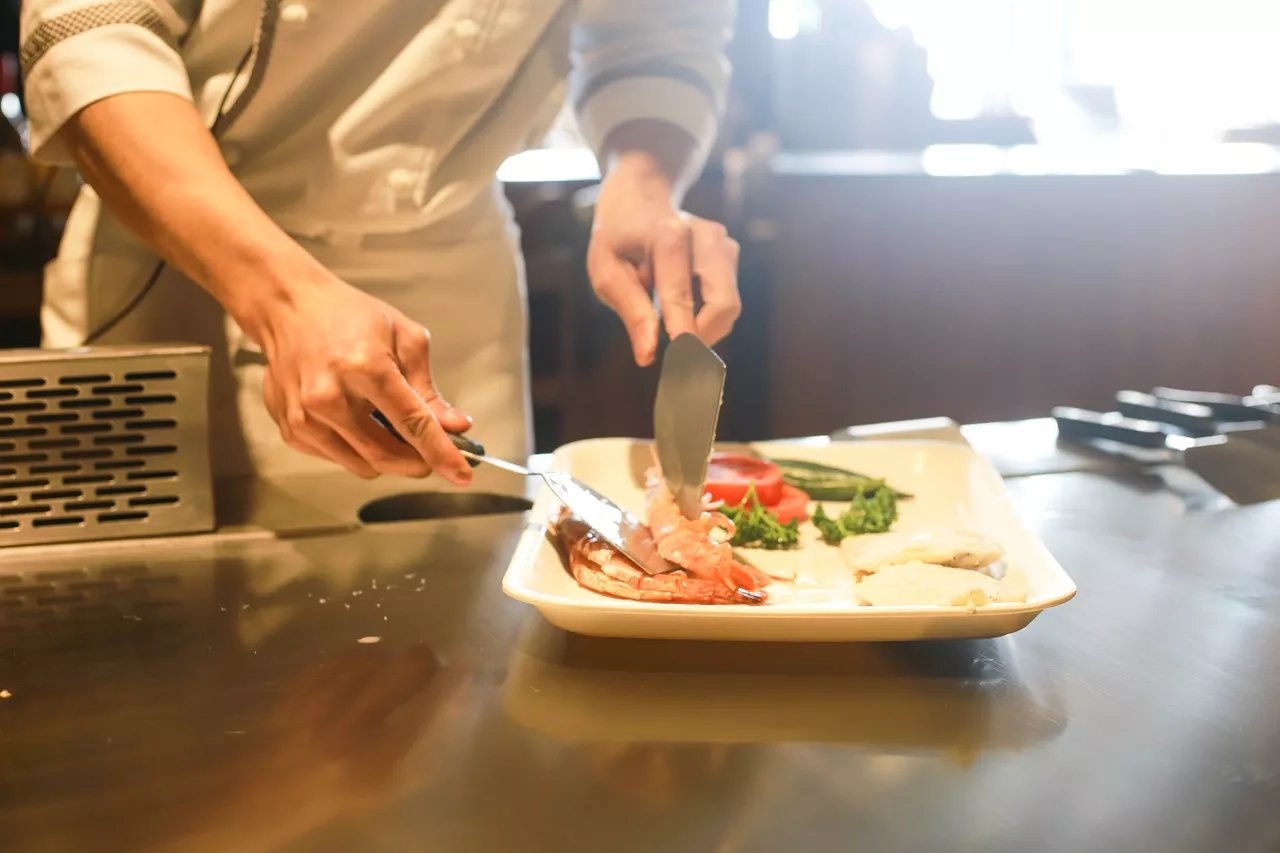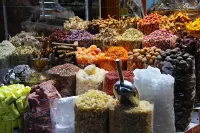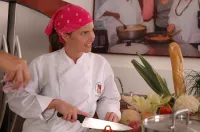Benefits of learning to cook on your own
Cooking is not just about preparing meals; it is an essential life skill that offers numerous benefits. When you learn to cook on your own, you gain control over what you eat, allowing you to make healthier choices. Additionally, cooking at home is more cost-effective than dining out, saving you money in the long run. Moreover, cooking can be a creative outlet that allows you to express yourself and experiment with different flavors and ingredients. Lastly, cooking for your loved ones can be a way to show your care and affection, creating memorable experiences and strengthening bonds.
Essential kitchen tools for self-taught chefs
Before embarking on your self-taught cooking journey, it's essential to equip your kitchen with the right tools. A good set of knives, including a chef's knife, paring knife, and serrated knife, is indispensable. Other essential tools include cutting boards, measuring cups and spoons, a whisk, a wooden spoon, a spatula, and a set of mixing bowls. Additionally, investing in quality cookware, such as a non-stick skillet, a saucepan, and a stockpot, will ensure even heat distribution and better cooking results. Lastly, don't forget about small appliances like a blender, food processor, and stand mixer, which can save you time and effort in the kitchen.
Building a strong foundation: Basic cooking techniques and skills
To become a master chef, it's crucial to build a strong foundation of basic cooking techniques and skills. Start by familiarizing yourself with essential techniques such as chopping, slicing, dicing, and mincing. Practice sautéing, braising, baking, grilling, and roasting to understand how different cooking methods can impact the flavor and texture of your dishes. Mastering the art of seasoning is also crucial; learn how to balance flavors by using herbs, spices, salt, and acid. Lastly, don't shy away from learning about food safety and proper handling techniques to ensure your meals are safe and delicious.
Exploring different cuisines: The importance of diversity in self-taught cooking
As a self-taught chef, one of the most exciting aspects of cooking is the opportunity to explore different cuisines. Experimenting with diverse flavors and ingredients will broaden your culinary horizons and enhance your cooking skills. Start by researching different regional cuisines and their signature dishes. Try recreating classic recipes from around the world, incorporating unique spices and techniques. Embrace the challenge of preparing unfamiliar dishes and be open to culinary fusion by combining elements from different cuisines. By exploring diverse cuisines, you'll not only expand your cooking repertoire but also develop a deeper appreciation for culinary traditions.
Mastering the art of meal planning and grocery shopping
Efficient meal planning and smart grocery shopping are essential skills for any self-taught chef. Start by creating a weekly meal plan, considering your schedule, dietary needs, and preferences. This will help you stay organized and avoid last-minute meal decisions. When grocery shopping, make a list based on your meal plan to ensure you have all the necessary ingredients. Opt for fresh, seasonal produce and high-quality proteins to elevate the flavors of your dishes. Consider visiting local farmers' markets for a wider variety of fresh ingredients. Lastly, don't forget to stock up on pantry staples such as spices, oils, and grains to always have the basics on hand.
Learning from the experts: Cookbooks, online resources, and cooking classes
While self-taught cooking is all about learning on your own, there is still much to gain from learning from the experts. Cookbooks are a treasure trove of knowledge, offering detailed recipes, techniques, and insights from renowned chefs. Online resources such as cooking blogs, YouTube channels, and cooking forums provide a wealth of information and inspiration. Consider enrolling in cooking classes, either in person or online, to learn from experienced chefs and interact with fellow cooking enthusiasts. By combining self-study with expert guidance, you'll accelerate your learning and gain valuable insights from those who have already mastered the art of cooking.
Developing creativity in the kitchen: Experimenting with flavors and ingredients
As a self-taught chef, one of the greatest advantages is the freedom to experiment and develop your unique cooking style. Don't be afraid to get creative in the kitchen and try new flavor combinations. Experiment with herbs, spices, and seasonings to elevate the taste of your dishes. Explore different cooking techniques and methods to create interesting textures and flavors. Consider incorporating unexpected ingredients or putting a twist on traditional recipes. The more you experiment, the more you'll develop your palate and discover your own culinary identity.
Overcoming challenges and staying motivated on your self-taught cooking journey
Like any skill, self-taught cooking comes with its fair share of challenges. It's important to stay motivated and overcome any obstacles that come your way. Embrace failure as an opportunity to learn and improve. Don't be discouraged by initial setbacks; instead, treat them as stepping stones on your culinary journey. Surround yourself with a supportive community of fellow food enthusiasts who can offer guidance and encouragement. Remember to celebrate your successes, no matter how small, as they will keep you motivated to continue honing your skills. With perseverance and a positive mindset, you will overcome any challenges and reach new heights as a self-taught chef.
Conclusion: Embracing the joy and satisfaction of self-taught cooking
Congratulations on embarking on the road to self-taught cooking excellence! By following this roadmap, you have equipped yourself with the necessary tools, techniques, and mindset to become a master chef in your own right. Embrace the joy and satisfaction that comes from creating delicious meals from scratch. Don't be afraid to experiment, make mistakes, and learn from them. And most importantly, enjoy the process. Cooking is not just about the end result; it's about the journey and the memories you create along the way. So, get ready to spice up your culinary adventures and unlock your inner master chef. Happy cooking!br/>br/>

 Rich Food Culture of the Middle East
Rich Food Culture of the Middle East Discover the 5 Essential Basics for Every Home Chef
Discover the 5 Essential Basics for Every Home Chef



